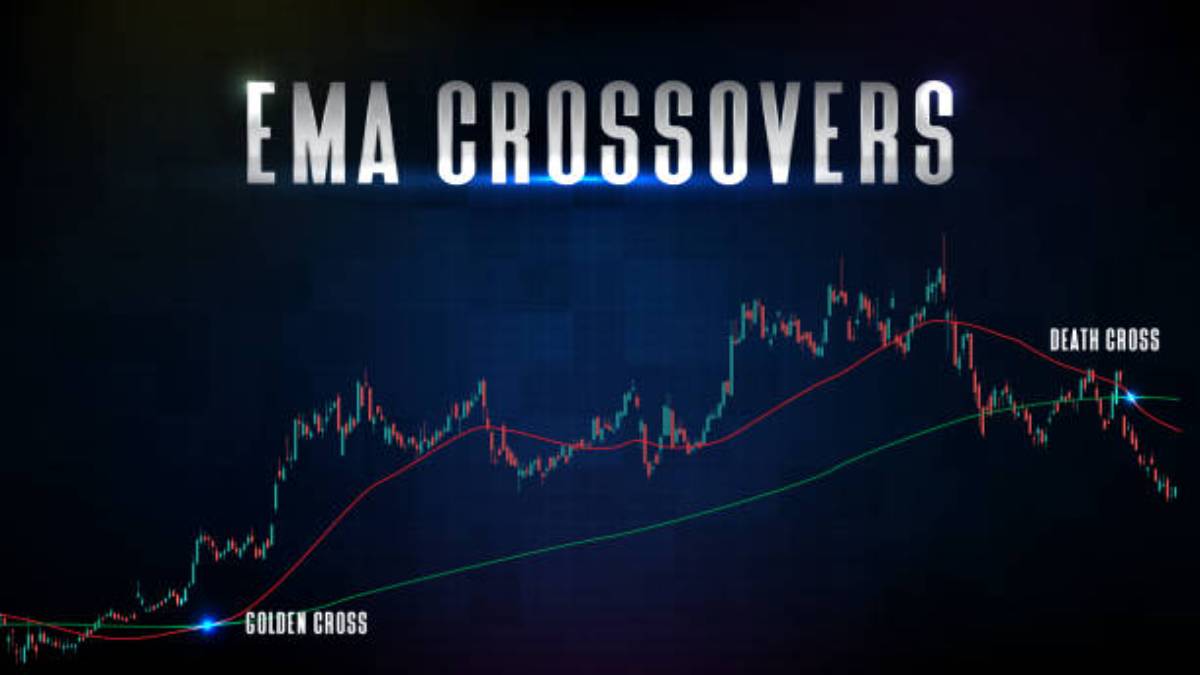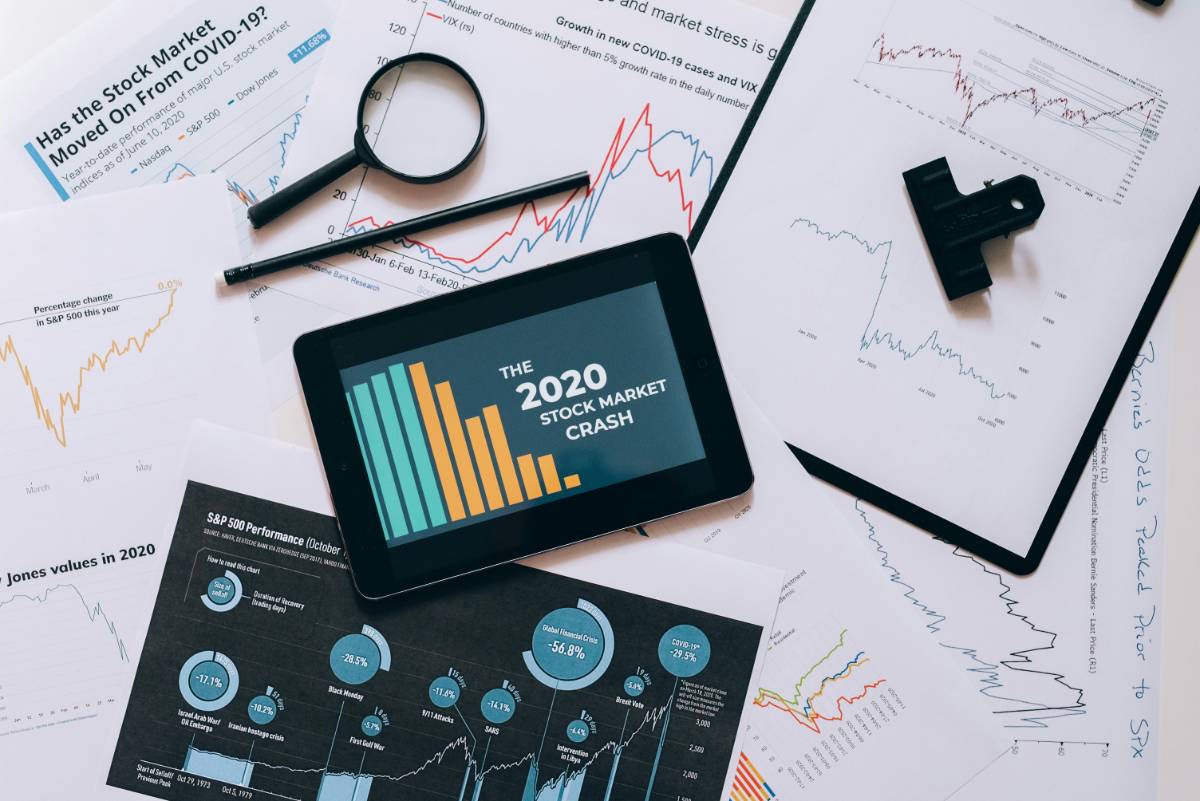
The Impact of Federal Reserve Policies on the Stock Market
 By Rajat Sen
By Rajat SenFederal Reserve policies play a crucial role in shaping the stock market. Interest rate decisions, quantitative easing, and regulatory measures directly impact investor sentiment and market performance. Understanding these effects can help traders and long-term investors navigate the evolving financial landscape.
Interest Rates and Market Volatility
Changes in interest rates influence borrowing costs for businesses and consumers. When the Fed raises rates, stocks often experience increased volatility as companies adjust to higher financing expenses and reduced consumer spending.
On the other hand, rate cuts generally boost stock prices by making borrowing cheaper and stimulating economic growth.
Quantitative Easing and Liquidity
The Federal Reserve's asset purchases, known as quantitative easing (QE), inject liquidity into the market, often driving stock prices higher. Investors tend to favor equities in a low-interest-rate environment where alternative investments yield lower returns.
Tapering QE or reducing the Fed's balance sheet can lead to market corrections as liquidity tightens and borrowing costs rise.
Inflation and Stock Market Reactions
Fed policies aimed at controlling inflation impact various sectors differently. High inflation may benefit commodity stocks but hurt consumer and tech stocks due to rising costs and squeezed profit margins.

Investors should monitor inflation data and Fed responses to anticipate market shifts effectively.
Investor Sentiment and Economic Outlook
Market participants closely watch Federal Reserve statements and projections. Hawkish signals—such as aggressive rate hikes—can trigger sell-offs, while dovish policies—such as rate cuts—often drive rallies.
Adapting investment strategies based on Fed guidance can help investors make informed decisions and mitigate risks.
You might also like
1. Top Performing ETFs in the U.S. for 20252. U.S. Stock Market Outlook: What to Expect in 20253. Top Investment Opportunities in the U.S. for 20254. Best Bond ETFs and Mutual Funds for a Stable PortfolioConclusion
Federal Reserve policies significantly influence stock market movements. By understanding interest rate changes, liquidity measures, and inflation controls, investors can better position themselves for market fluctuations and long-term success.

About the author
 By Rajat Sen
By Rajat SenRajat Sen is a seasoned finance writer with over 8 years of experience helping millennials and Gen Z take control of their money. With a background in economics and a passion for demystifying complex financial concepts, Ananya shares actionable tips on budgeting, investing, and building long-term wealth. Her mission is to make financial literacy accessible, relatable, and empowering — no jargon, just smart money moves.
More like this

Stock Buybacks: How They Influence Share Prices
Stock buybacks have become a common strategy for companies looking to boost share prices and reward investors. Understanding their impact can help investors make informed decisions.

Meme Stocks: Are They Making a Comeback?
Meme stocks took the financial world by storm in recent years, driven by online communities and retail investors. As market conditions shift, many wonder if these stocks are making a comeback.

Dividend Stocks vs. Growth Stocks: Where’s the Best Opportunity?
Investors often face a crucial decision when building their portfolios: Should they invest in dividend stocks for stability or growth stocks for higher returns? Understanding the differences can help in making the right choice based on financial goals and risk tolerance.

How Geopolitical Events Affect U.S. Stock Performance
Geopolitical events have a significant impact on the U.S. stock market, influencing investor sentiment, market volatility, and sector performance. Understanding these effects can help investors navigate uncertainty and make informed decisions.

AI and Automation: The Next Big Disruptors in the Stock Market
Artificial intelligence and automation are transforming industries, and the stock market is no exception. These technologies are reshaping investment strategies, trading mechanisms, and market dynamics at an unprecedented pace.

S&P 500 vs. Nasdaq: Where Should You Invest?
Investors often compare the S&P 500 and the Nasdaq when deciding where to allocate their funds. Understanding the differences between these indices can help you make a strategic investment choice based on your risk tolerance and financial goals.

Why Tech Stocks Are Leading the Market Again
Tech stocks are once again at the forefront of the market, driven by innovation, strong earnings, and investor optimism. As companies in the sector continue to expand their influence, understanding the reasons behind this surge can help investors make informed decisions.

The Impact of Federal Reserve Policies on the Stock Market
Federal Reserve policies play a crucial role in shaping the stock market. Interest rate decisions, quantitative easing, and regulatory measures directly impact investor sentiment and market performance. Understanding these effects can help traders and long-term investors navigate the evolving financial landscape.

Top Performing Stocks on Wall Street This Quarter
The latest quarter on Wall Street has seen significant movements, with some stocks outperforming expectations while others struggled to keep up. Understanding these trends can help investors make informed decisions moving forward.

U.S. Stock Market Outlook: What to Expect in 2025
As we move into 2025, investors are looking for insights into the U.S. stock market's potential trajectory. Market trends, economic policies, and global events will all play crucial roles in shaping investment opportunities.

Market Volatility: Should Investors Be Concerned?
Market volatility is a common concern for investors, especially in uncertain economic conditions. While fluctuations in stock prices can be unsettling, understanding the factors behind market swings can help investors navigate uncertain times with confidence.

Tech Stocks to Watch: Are We in Another Boom?
The technology sector has been a driving force in the stock market, and recent trends suggest another potential boom. With advancements in artificial intelligence, cloud computing, and semiconductor innovation, investors are eyeing key tech stocks for future growth.

How Federal Reserve Decisions Are Impacting U.S. Stocks
The Federal Reserve plays a crucial role in shaping the U.S. stock market. Interest rate adjustments, monetary policy shifts, and economic outlooks set by the Fed significantly influence market trends and investor sentiment.

Top Gainers and Losers on Wall Street This Month
The stock market is constantly shifting, with certain stocks outperforming while others struggle. This month, Wall Street has seen significant movements in both directions. Here’s a look at the top gainers and losers.

Latest Trends Shaping the U.S. Stock Market in 2025
The U.S. stock market is evolving rapidly, with new trends shaping investor strategies and market movements. Understanding these trends can help investors make informed decisions in 2025.

Emergency Funds: Why They’re Essential and How to Build One
An emergency fund is a crucial aspect of financial planning, providing a safety net for unexpected situations such as medical emergencies, car repairs, or sudden job loss. Having a well-established emergency fund can reduce stress and prevent you from going into debt when life’s unexpected events occur. In this article, we’ll explore why emergency funds are essential and how you can start building one today.



